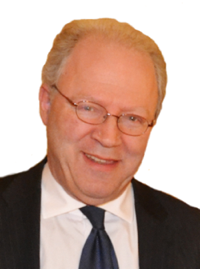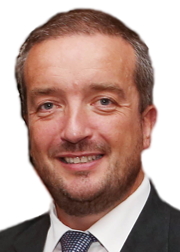As part of our ongoing series that explores the state of the negotiations on the Sustainable Development Goals, Ray Jordan, CEO of Irish charity Gorta-Self Help Africa sat down with Permanent Representative of Ireland to the United Nations, Ambassador David Donoghue, who is acting as co-facilitator in the negotiations.
Ray Jordan: Could you briefly update us on where the Sustainable Development Goal/Post 2015 negotiation process is at present and what are the priority issues currently being discussed?
David Donoghue: The negotiations which are being co-facilitated by Ireland and Kenya are organised around a document which world leaders will adopt at September’s Summit in New York, the so-called “Post 2015 Development Agenda.” This document has four components; the SDGs and targets, a Declaration, a section dealing with the Means of Implementation for the set of goals and targets and a section on follow-up and review of implementation of the new framework.
At the March session, we will be discussing the 17 goals and 169 targets proposed by the Open Working Group last July. There is a strong preference on the part of many member States to carry these forward intact into the document to be prepared for the September summit.
At our April session, we will be focussing on identifying the tools needed to support implementation — from domestic and international finance to technology and sound policies etc. This will be very closely linked to an international conference in Addis in July on Financing for Development.
In May, we will consider the framework needed to monitor progress against the goals and targets. And from June onwards, we will seek to bring all of this together and to move towards agreement on a document for the September Summit. I would hope that we can complete our work by the end of July.
RJ: How important are food security, nutrition and sustainable agriculture to delivering on these goals?
DD: In my view, these issues go to the very core of this entire agenda.
We cannot achieve shared prosperity or dignity for all if millions of people continue to suffer from hunger and malnutrition. Equally, it will be impossible to reduce poverty and hunger on a sustainable basis if we continue to undermine the biodiversity and ecosystems upon which our entire global food system depends.
Food and nutrition security and sustainable agriculture, currently captured through a dedicated Sustainable Development Goal, are therefore key to attaining the overarching objectives of the Post 2015 Agenda: eradicating extreme poverty and promoting sustainable development.
RJ: Why has Ireland taken such a strong leadership position in this process?
DD: Ireland is a very strong supporter of the need for an effective international response to the world’s most pressing challenges.
Like everyone else, we witnessed the great progress which the MDGs helped spur. So we have taken every opportunity to support the process to agree its successor. Taking on the co-facilitation role is a great honour for me personally. It also reflects Ireland’s reputation internationally as a reliable ‘honest broker’ and as an experienced, committed and principled actor in the pursuit of an end to global poverty and hunger. .
It is of course a great responsibility as well. But, while there will no doubt be many testing moments between now and September, I am confident that we will reach an ambitious, comprehensive and transformative agreement capable of changing the world in which we live.
RJ: Are you optimistic that such an ambitious programme can be delivered? What needs to change for this transformation to happen?
DD: I am quietly optimistic that these ambitions can be met.
In my view, we are quickly approaching a tipping point in the fight against poverty and in the pursuit of sustainable development. Four aspects of this agenda will, I believe, help us to reach that tipping point.
First, in September, the adoption of a set of Sustainable Development Goals by world leaders will represent a clear statement of our commitment to a world in which prosperity is shared, where no one is left behind and where economic progress cannot come at the expense of our planet or of future generations. Such an unequivocal statement could represent a real turning point in international affairs, in global politics and economic thinking.
Second, unlike the MDGs, the SDGs really have government buy-in and the buy-in of other stakeholders. They are comprehensive in nature and, in a real break with the past North-South dichotomy; they apply to all countries — from Iran to Ireland, from the Ivory Coast to Iceland.
Third, with the advances of the last century in terms of technology, connectivity, health care, access to finance and shared knowledge, andgiven the energy with which global civil society and the private sector are embracing this Agenda, there are simply no excuses for inaction.
Fourth, unlike the MDGs, the SDGs and the commitments on means of implementation will be accompanied by a strong monitoring component which will see governments accountable to their own peoples and to each other for the commitments they make in New York next September.
RJ: ‘Country leadership’ and ‘Partnership’, are two amongst the most referred to concepts in this debate, what are your views?
DD: It is clear from the negotiations I am co-chairing that governments around the world are really embracing this agenda.
There is, of course, agreement that the ability of individual countries to achieve the goals and targets will depend on their own circumstances, capacities and stage of development. Accountability at country level will be critically important. There is a real sense, however, that a variety of stakeholders are ready to support governments to help implement the agenda. Here, we are not just talking about programming partnerships with civil society actors and foundations. There is also an opportunity for citizens to oversee implementation and for businesses to adjust their own business practices as they seek to maximise their contribution to people-centred and planet-sensitive economic development.
RJ: Gorta-Self Help Africa is celebrating 50 years working on agriculture and rural development. Where would you see NGOs such as us playing a role in the post 2015 development agenda?
DD: When all the negotiations have finished, the real work will begin. And that is when agriculture and rural development NGOs will take centre stage.
In some respects many rural development NGOs, like Gorta-Self Help Africa, are already ahead of the game, focussing on smallholder farmers and on promoting climate-smart agriculture. The challenge will be to bring successful practices to scale and to ensure that the three dimensions of sustainable development – social, environmental and economic – are integrated into each and every programme. We must also ensure that vulnerable and marginalised groups, including women and girls, are empowered through our efforts.
A further challenge will be to ensure that progress achieved is politically sustainable, respects the rule of law and supports the realisation of all human rights.
RJ: What message/call for action would you like to leave with those of us engaged in the SDG process?
DD: The message to everyone out there is simple but compelling: engage as much as you can in this agenda, whether in the negotiation process coming up to September or in the fifteen years of action needed to turn the new goals and targets into reality.
This is a once-in-a-generation opportunity. We have no option but to seize it. And, for the new framework to succeed, we need everyone working together in the same direction to support it.




